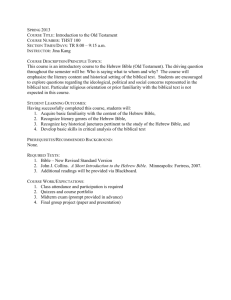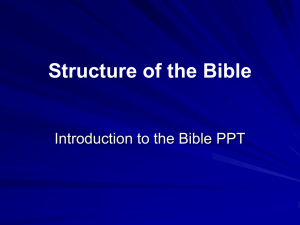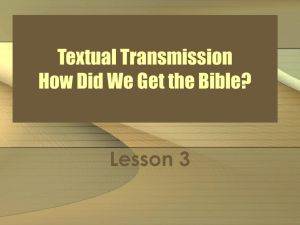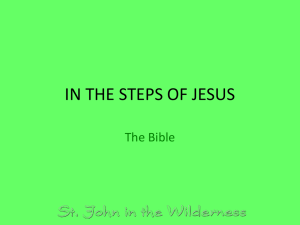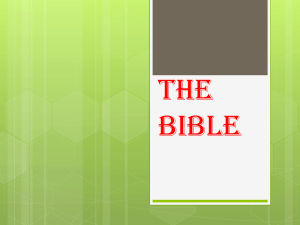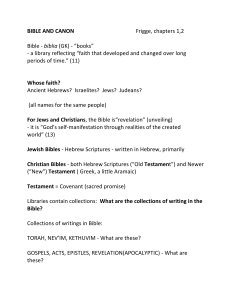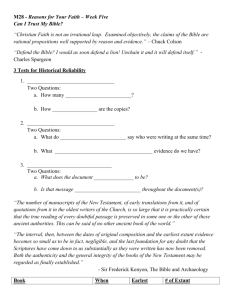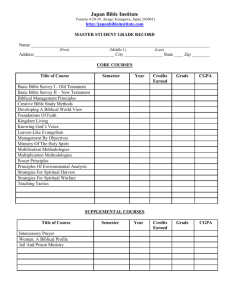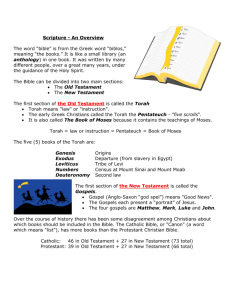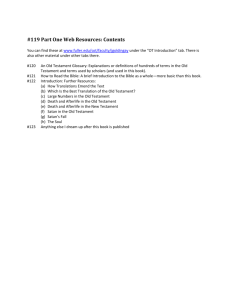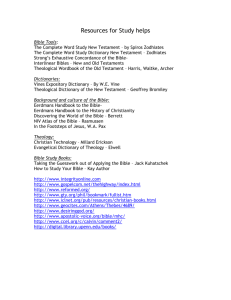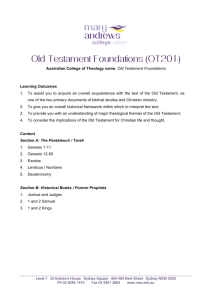Honors English II--Bible as/in Literature Vocabulary
advertisement
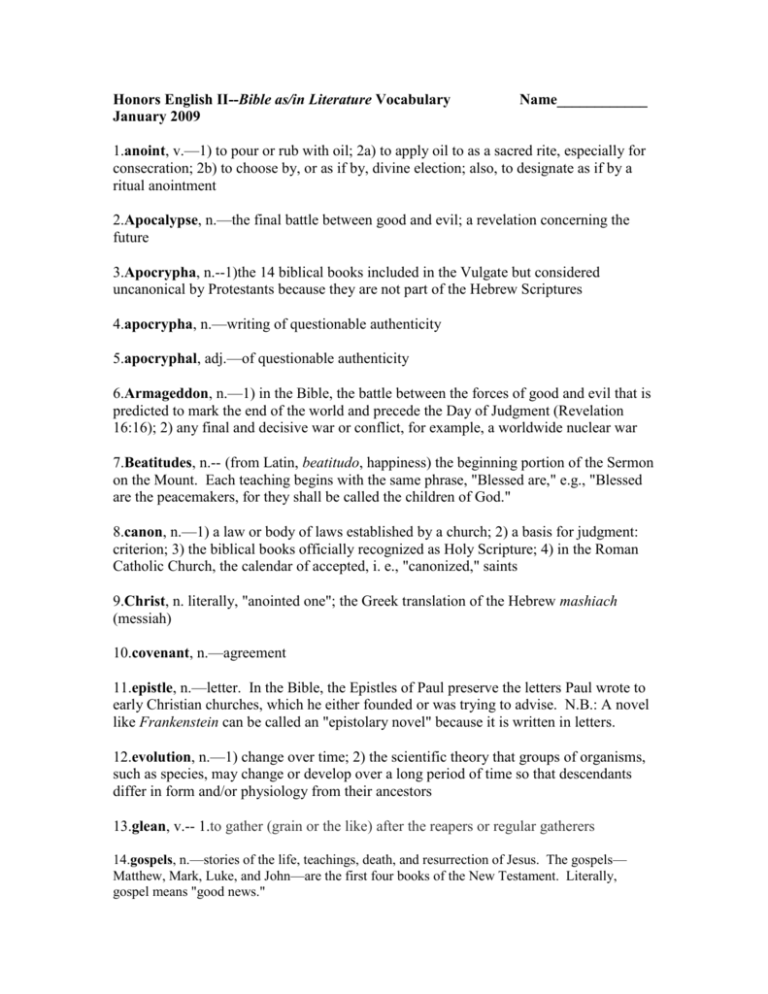
Honors English II--Bible as/in Literature Vocabulary January 2009 Name____________ 1.anoint, v.—1) to pour or rub with oil; 2a) to apply oil to as a sacred rite, especially for consecration; 2b) to choose by, or as if by, divine election; also, to designate as if by a ritual anointment 2.Apocalypse, n.—the final battle between good and evil; a revelation concerning the future 3.Apocrypha, n.--1)the 14 biblical books included in the Vulgate but considered uncanonical by Protestants because they are not part of the Hebrew Scriptures 4.apocrypha, n.—writing of questionable authenticity 5.apocryphal, adj.—of questionable authenticity 6.Armageddon, n.—1) in the Bible, the battle between the forces of good and evil that is predicted to mark the end of the world and precede the Day of Judgment (Revelation 16:16); 2) any final and decisive war or conflict, for example, a worldwide nuclear war 7.Beatitudes, n.-- (from Latin, beatitudo, happiness) the beginning portion of the Sermon on the Mount. Each teaching begins with the same phrase, "Blessed are," e.g., "Blessed are the peacemakers, for they shall be called the children of God." 8.canon, n.—1) a law or body of laws established by a church; 2) a basis for judgment: criterion; 3) the biblical books officially recognized as Holy Scripture; 4) in the Roman Catholic Church, the calendar of accepted, i. e., "canonized," saints 9.Christ, n. literally, "anointed one"; the Greek translation of the Hebrew mashiach (messiah) 10.covenant, n.—agreement 11.epistle, n.—letter. In the Bible, the Epistles of Paul preserve the letters Paul wrote to early Christian churches, which he either founded or was trying to advise. N.B.: A novel like Frankenstein can be called an "epistolary novel" because it is written in letters. 12.evolution, n.—1) change over time; 2) the scientific theory that groups of organisms, such as species, may change or develop over a long period of time so that descendants differ in form and/or physiology from their ancestors 13.glean, v.-- 1.to gather (grain or the like) after the reapers or regular gatherers 14.gospels, n.—stories of the life, teachings, death, and resurrection of Jesus. The gospels— Matthew, Mark, Luke, and John—are the first four books of the New Testament. Literally, gospel means "good news." 15.hagiography, n. --1) biography of saints or revered persons; 2) an idealizing biography 16.immaculate conception--literally "conception without stain," or the virgin birth; the concept that Mary miraculously conceived Jesus but remained a virgin. 17.mammon, n.—wealth and riches considered as an evil and corrupt influence 18.matriarch, n.--one of the female founders of the Hebrew genealogy: Sarah, Rebekah, Rachel, Leah 19.Original Sin—the sinful state, deriving from the disobedience of Adam and Eve, that Christians believe all people are born into. 20.patriarch, n.—one of the male founders of the Hebrew genealogy: Abraham, Isaac, Jacob 21.primogeniture, n.—the exclusive right of the eldest child, especially the eldest son, to inherit a family's estate 22.messiah, n. –1) the expected king and deliverer of the Jews; 2) Jesus ("Messiah"— capitalized); 3) a professed or accepted leader of some hope or cause 23.New Testament, n.—the portion of the Christian Bible which tells the story of Jesus and the spread of Christianity after his death 24.Old Testament, n.-- the portion of the Christian Bible which tells the story of the Hebrews 25.Pentateuch, n.—the first five books of the Hebrew Bible/Old Testament: Genesis, Exodus, Leviticus, Numbers, Deuteronomy. Literally, Pentateuch means "five scrolls." 26.Philistine, n.--a member of an ancient people in Palestine (N.B.: Goliath was a Philistine.) 27.philistine, n.-- one who is annoyingly indifferent to artistic and intellectual matters 28.prophet, n.—one who speaks for God 29.recitative, n.—a style of singing that is close to the rhythm of natural speech, used in opera for dialogue and narration 30.Sodom and Gomorrah, n.—1) ancient cities destroyed by God for their wickedness; 2) a place notorious for vice and corruption 31.testament, n.—a document which witnesses to the truth of an event or series of events 32.Torah, n.— the first five books of the Hebrew Bible/Old Testament: Genesis, Exodus, Leviticus, Numbers, Deuteronomy. Literally, Torah means "teaching" or "law."
